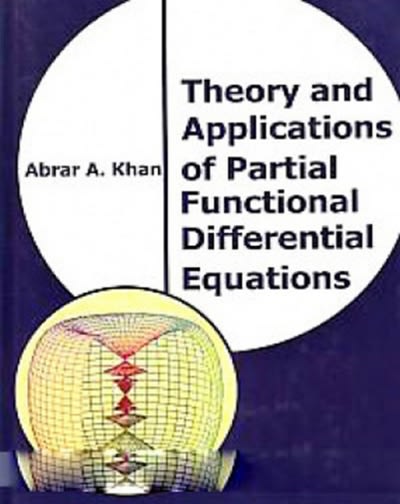Question
1) Sampling distributions describe the distribution of A. parameters. B. statistics. C. both parameters and statistics. D. neither parameters nor statistics. 2) The width of
1) Sampling distributions describe the distribution of
A. parameters.
B. statistics.
C. both parameters and statistics.
D. neither parameters nor statistics.
2) The width of a confidence interval estimate for a proportion will be
A. narrower for 99% confidence than for 95% confidence.
B. wider for a sample size of 100 than for a sample size of 50.
C. narrower for 90% confidence than for 95% confidence.
D. narrower when the sample proportion is 0.50 than when the sample proportion is 0.20.
3) Independent variables that have insignificant t-test P-values:
A. are removed when using the stepwise method
B. may be significant if tested again after removing regression outliers
C. change the value adjusted r-squared very little
D. all of the above
4) The process of using sample data to make guesses about an entire population is called:
A. Descriptive statistics
B. Statistical inference
C. data analysis
D. random sampling
5) If the p value is less than the level of significance in a two-tailed test,
A. the null hypothesis should not be rejected.
B. the null hypothesis should be rejected.
C. a one-tailed test should be used.
D. no conclusion should be reached.
6) In testing for differences between the means of 2 independent populations the null hypothesis is:
A. H0: Difference is positive
B. H0: No mean difference
C. H0: Mean difference is negative
D. H0: Mean difference is not equal to the test value.
7) You run a z-test and get a test get a 2-tail P-value of .0000. You know:
A. the alternative hypothesis should NOT be accepted
B. the z test statistic would be less than 1.96 (+/-)
C. the null should be accepted
D. the result is highly significant
8) Which of the following is most likely a parameter as opposed to a statistic?
A. The average score of the first five students completing an assignment.
B. The proportion of females registered to vote in a county.
C. The average height of people randomly selected from a database.
D. The proportion of trucks stopped yesterday that were cited for bad brakes.
10) A 95% confidence interval estimate can be interpreted to mean that
A. if all possible samples are taken and confidence interval estimates are developed, 95% of them would include the true population mean somewhere within their interval.
B. we have 95% confidence that we have selected a sample whose interval does include the population mean.
C. Both of the above.
D. None of the above.
11) The regression function indicates the
A. average value the dependent variable assumes for a given value of the independent variable.
B. actual value the independent variable assumes for a given value of the dependent variable
C. average value the dependent variable assumes for a given value of the dependent variable
D. actual value the dependent variable assumes for a given value of the independent variable
12) In Simple Linear Regression the slope (b1) represents
A. predicted value of Y when X = 0.
B. the estimated average change in Y per unit change in X.
C. the predicted value of Y.
D. variation around the line of regression.
13) If the correlation coefficient (r) = 1.00, then
A. all the data points must fall exactly on a straight line with a slope that equals 1.00.
B. all the data points must fall exactly on a straight line with a negative slope.
C. all the data points must fall exactly on a straight line with a positive slope.
D. all the data points must fall exactly on a horizontal straight line with a zero slope.
Step by Step Solution
There are 3 Steps involved in it
Step: 1

Get Instant Access to Expert-Tailored Solutions
See step-by-step solutions with expert insights and AI powered tools for academic success
Step: 2

Step: 3

Ace Your Homework with AI
Get the answers you need in no time with our AI-driven, step-by-step assistance
Get Started


